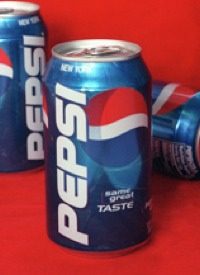
In protesting the Pepsi/Senomyx relationship, the shareholder had asked PepsiCo to “adopt a corporate policy that recognizes human rights and employs ethical standards which do not involve using the remains of aborted human beings in both private and collaborative research and development agreements.” In late February the SEC decided against the shareholder, ruling that PepsiCo’s agreement with Senomyx falls under “ordinary business operations” for the soft drink company.
In response to the articles, Jeff Dahncke, senior director of communications for PepsiCo, e-mailed The New American “to correct the misperceptions and erroneous information” he said had appeared in media reports about the controversy. “PepsiCo does not conduct or fund research, including research performed by third parties, which utilizes any human tissue or cell lines derived from embryos or fetuses,” Dahncke insisted, noting that the policy is clearly stated in the company’s “statement on responsible research“ on its website. “Any research funded by PepsiCo and conducted by Senomyx for PepsiCo must abide by this responsible research statement,” he said.
Asked about the statement, Debi Vinnedge, founder and director of Children of God for Life, said that it is very similar to those received by individuals contacting PepsiCo to express their concern over its relationship with Senomyx. “This is really nothing that we haven’t seen before,” she said, noting that past automated responses from Pepsi sent to concerned pro-lifers state: “Please know that PepsiCo does not conduct or fund research that utilizes any human tissue or cell lines derived from embryos.”
Vinnedge said that such assurance flies in the face of strong evidence to the contrary. “PepsiCo is certainly funding research for Senomyx as its own letter admits,” she said. “And as for Senomyx using aborted fetal cell lines in its business, that has been well-established, as our own organization has posted links to articles on Senomyx’s patents for sweet receptors.”
She added that such media outlets as the Wall Street Journal and DailyMarkets.com published the news of PepsiCo’s $30-million research deal with Senomyx. “All this is pretty difficult to deny,” she said.
How does PepsiCo get away with denying the obvious? Vinnedge said it is all a matter of contorted semantics. “The aborted fetal cell line that Senomyx uses is from a lab that has cultivated it out of cells from a baby aborted in the 1970s,” she told The New American. “So obviously neither PepsiCo nor Senomyx took these cells directly from the fetus.”
She explained that the cells, officially known as HEK-293, were cultivated from the kidney tissue of the aborted baby, and then frozen. “From that point, the cell line is made available for sale by several companies, like American Type Cell Culture. The cell line is then shipped to buyers maintaining cold-chain temperature and subsequently either thawed for use or frozen in the buyer’s lab for future use. When it's thawed, the cells are cultivated to produce more cells.”
She added: “PepsiCo and Senomyx can get away with saying that they’re not taking the cells directly from a fetus, even though they are ultimately from an aborted baby, and the cell line still contains the full DNA from that baby, no different than if you were taking it directly from the fetus.”
She noted that “morally, it makes no difference whether an abortion was done 30 years ago or today. Time does not diminish the original act of evil, nor does it lessen the culpability of those who knowingly and willingly utilize the remains of aborted children for profit.”
What is more frustrating, Vinnedge added, is that there are many perfectly suitable alternative cell lines that don’t involve killing a baby. “They could have easily chosen COS [monkey] cells, Chinese hamster ovary cells, insect cells, or other morally obtained human cells expressing the G protein for taste receptors,” she said. “We’ve encouraged Senomyx along these lines, but they have completely ignored us.”
She said that PepsiCo’s aggressive efforts to stonewall the shareholder’s concerns over its relationship with Senomyx certainly lend credence to charges that the companies have something to hide. “Were Pepsi not funding this research to the tune of $30 million paid up front — plus royalties to Senomyx in the future — you can be assured they would have asked for a swift dismissal of the shareholder resolution filed with the SEC in a quick paragraph,” Vinnedge said. “Instead, they wrote a 36-page response detailing previous exclusions by the SEC on other companies that also use aborted fetal or embryonic material, such as Pfizer, GE, and Merck.”
In his e-mail to The New American, Pepsi spokesman Jeff Dahncke attempted to defuse Vinnedge’s suggestion that the company’s next major product rollout, Pepsi Next, is a creation of its partnership with Senomyx. He explained that while the blend of sweeteners in the new low-sugar, low-calorie soft drink is innovative, “the sweeteners themselves are not, and Senomyx has no involvement with the development of the Pepsi NEXT recipe.”
Vinnedge said that if what Dahncke said is true, that would be great news, “because it means PepsiCo could still convince Senomyx to use a moral cell line for their upcoming product or products.” However, she said, “based on PepsiCo’s pattern of deceiving the public we highly doubt their sincerity now.” She added that a pair of articles by CBS News and the New Yorker magazine appear to suggest that Senomyx’s dubious handprint is all over the Pepsi Next recipe.
Vinnedge said it is important to hold companies such as PepsiCo and Senomyx accountable for their research and development practices. “It would certainly be easier to take their denial at face value, and move on,” she said. “But unless people stand up and say, ‘No, this is unacceptable,’ what Senomyx and PepsiCo are doing — and worse — will become the norm.”
Click Here to find out how you can encourage PepsiCo to sever its ties to Senomyx.
Photo: AP Images



